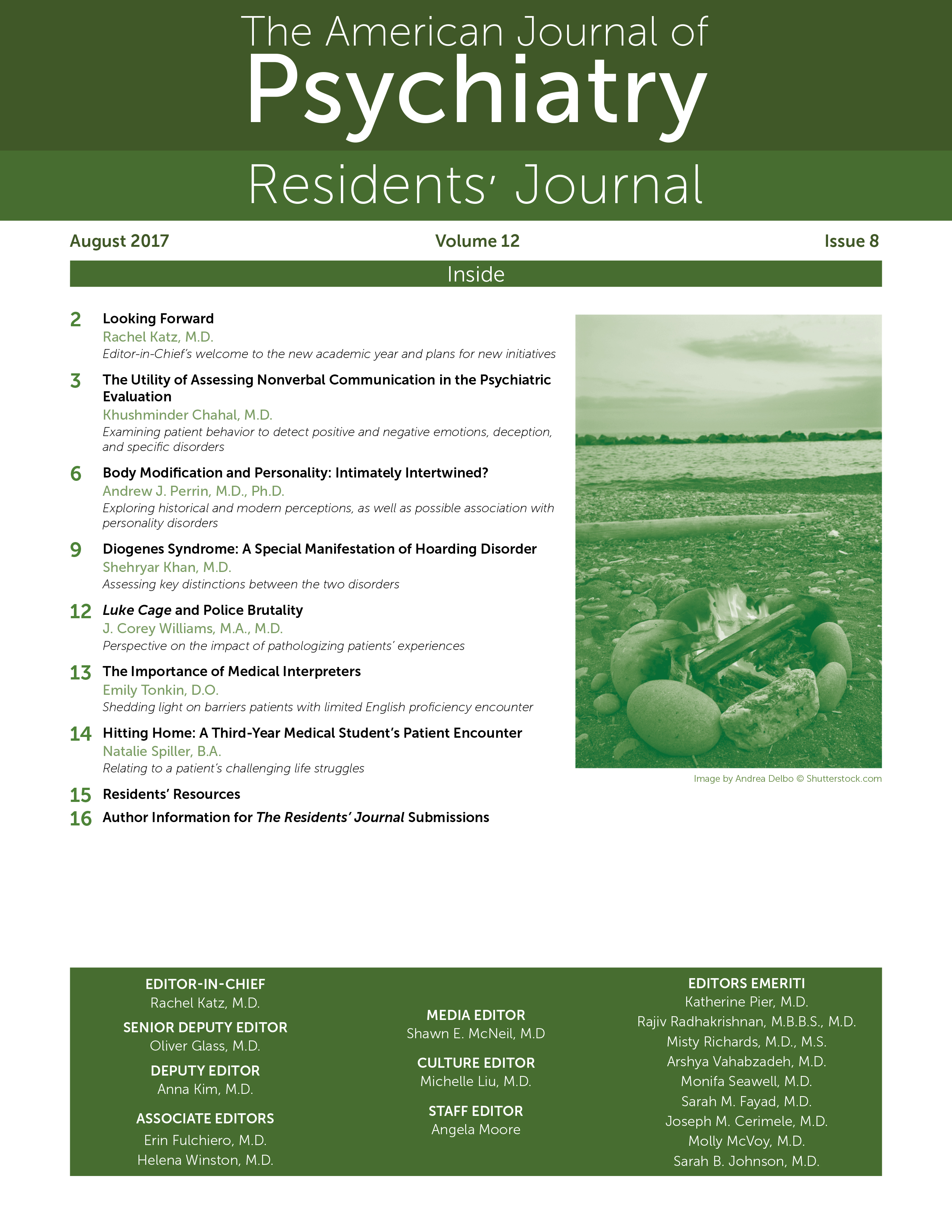While downing the last drops of a stale coffee, another stack of papers plopped onto my now overflowing desk. I briefly gazed down at the note from the emergency department, “few days of visually disturbing thoughts and paranoia.” Tossing the empty Styrofoam cup, I headed to meet the patient, “Miss A.” Given her description as a “previously psychotic and combative meth addict,” I was surprised when a timid, young woman rose from her chair. Together we walked, and I further observed the stooped posture, downcast gaze, and unkempt hair she bore. We began to talk, and although she was initially guarded, my in-depth knowledge of the shelter she was staying at and specific details of the recovery process helped her to open up and allow me into her world.
“At 5, my step-father molested me,” she began.
I nodded reassuringly.
“My foster siblings and mother’s string of boyfriends did the same.”
Emotionless, she continued.
“At 14, I attempted suicide, but they took me to the hospital. At 17, I filed for independence from my mother, met [“Mr. A”], and got pregnant with my son,” therein tying her to a relationship that itself became abusive for 10 years.
“Are you still together?” I probed.
“Split 7 months ago,” Miss A replied, gaze falling to the floor. “I couldn’t handle it.”
She admitted, as many without proper psychiatric help do, drugs were her outlet to “kill the pain.” Now in rehab, she is desperately trying to prove herself a worthy mother for her son.
As anyone with intimate knowledge of someone with an addiction can verify, this disease wreaks astonishing havoc on both the individual and those trying to help. Being a witness to the emotional chaos, chemical overdoses, legal issues, and loss of personal stability, one can gain a keen understanding of just how hard recovery is. In meeting and speaking with Miss A, I saw an eerie resemblance of a close relative in her.
Matching age, gender, race, and mental status, my close relative endured a similar journey. After a catastrophic bout with opioids, leaving her jobless and pregnant, she retrospectively describes the experience: “It’s like being stuck in a whirlpool, submerged up to your eyes. All you can do is try to stay alive.” She remains firm that it was the lowest point of her life—total loss of stability, pride, and will to live. My relative vehemently acknowledges that drugs were her method to suppressing a darkness she could not face. In her situation, we were lucky to have the support and opportunities to make sobriety a sustainable reality. For Miss A, whether she believed it in her current state or not, this too could be her future. This was no end, simply a different beginning.
Through life encounters like this, whether we are identifying a learning disorder in a child or turning around the life of someone struggling with addiction, I clearly see my future in this profession as one full of both challenges and hope.
